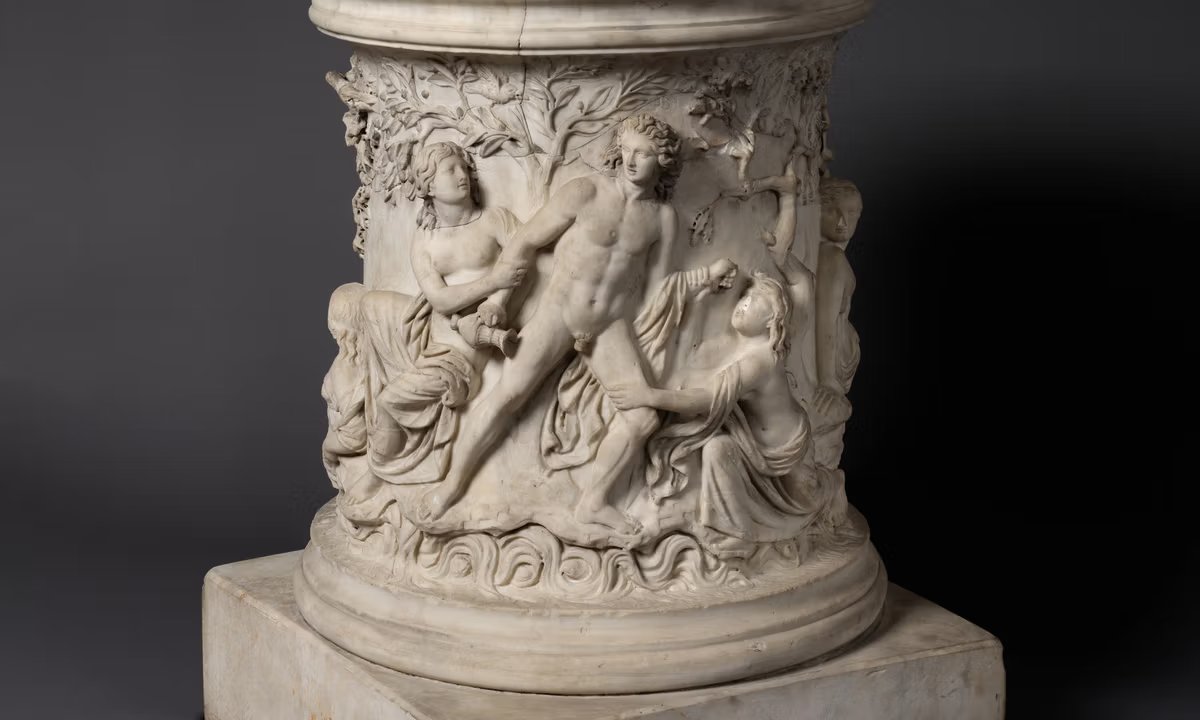Paid non-client promotion: Affiliate links for the products on this page are from partners that compensate us (see our advertiser disclosure with our list of partners for more details). However, our opinions are our own. See how we rate investing products to write unbiased product reviews.
Masterworks is an alternative investing platform for fractional art investing from top-performing artists like Banksy, George Condo, and Andy Warhol. It’s a user-friendly platform that makes diversifying your portfolio with promising contemporary art simple. However, investing in art poses unique risks with limited liquidity.
- Easy-to-follow investing process
- Masterworks vets each offering/handles due diligence process
- Open to both accredited and non-accredited investors
- Platform is easy to navigate
- Extremely illiquid
- Prospective members have to participate in phone interview to join platform
- Holding periods can range from 3-10 years
Product Details
- Access hundreds of fine and contemporary artworks that have historically outpaced the S&P 500.
Introduction to Masterworks
Masterworks is a dedicated art investment platform for retail and accredited investors who aren’t opposed to high-risk investments and long waiting periods. The top artists featured on Masterworks often outpace the S&P 500, and the price of art isn’t often affected by periods of financial stress.
Like many of the best investment apps that offer alternative investment options, Masterworks only accepts artworks that pass through its intense diligence process. Out of 24,000 analyzed artist markets, Masterworks accepts less than 3% of the artworks offered.
Masterworks is best for experienced traders who don’t mind the risk and limited liquidity involved with investing in contemporary fine art. It isn’t the best option for risk-averse investors who want investments with high liquidity. Also, you’ll need to hold assets for at least three years, depending on which art you invest in.
Masterworks: Overall Rating
How Masterworks Works
The Masterworks research team uses proprietary data to pinpoint the best artist markets and purchase promising works. Once purchased, Masterworks files them with the SEC to securitize the art pieces. In other words, it converts artwork into securities anyone can purchase. Individual investors can’t hold more than 10% of shares for a specific artwork in their portfolio.
After you buy shares of a specific artwork, you must wait until Masterworks sells the painting (typically after a three to 10-year waiting period) before receiving potential earnings. Once your shares have been liquefied, the funds will be deposited into your account.
Masterworks offers art investment research on the contemporary and fine art market, including up-to-date market data. Datasets show recent sales, annual returns, and gross artwork appreciation.
Wallet Account
You also have the option to sell shares directly to other US users on the platform’s secondary market. However, you must have a qualifying brokerage account to access fee-free trading on Masterwork’s secondary trading market. You must also wait at least 90 days after purchasing shares before being eligible to start selling.
Masterworks doesn’t offer a brokerage account directly. Instead, users can open a wallet account provided by Templum Markets to deposit funds and participate in trading on the secondary market. Templum is a multi-asset investment platform that offers automated investing strategies, secondary trading, and data. A Templum wallet account can also fund purchases on Masterwork’s primary market.
You may get more liquidity from your assets if you sell early on the secondary market rather than waiting for Masterworks to sell on the primary. However, the secondary trading market is only available for US users.
Fine art is generally more risky and overall has low liquidity. If you play your cards right, you may be able to sell your assets for a high price. But you’re still at risk of losing most, if not all, of your money. Only folks who are knowledgeable about fine art should invest in it.
To sign up with Masterworks, you must first fill out a membership application, and then participate in a phone interview. The interview process is primarily focused on your goals and financial objectives.
Risks to Consider
Masterworks alternative investments come with several unique risks. The platform outlines these in its disclosures:
- Unproven business model: Many of Masterworks’ features are untested. In other words, success isn’t guaranteed. The platform says it may have to auction off artwork if its business model fails.
- Issuers are un-diversified: Investments with single-asset issuers can be risky since you’re investing in a single piece of art. In addition, issuers that offer investments in a collection of different art pieces may still only offer limited access to that particular art market, according to Masterworks.
- Illiquidity: Masterworks issuers typically hold paintings for three to 10 years. However, there’s still a possibility that investors won’t be able to liquidate their shares after the holding period, and there isn’t a guarantee that all shares will ever be tradable.
- Potential Masterworks conflicts of interest: Masterworks doesn’t have a fiduciary duty, and its interests (plus that of its Board of Managers) may not always align with client interests.
- Ability to trade shares: The platform says there isn’t an active public market for those who want to exchange their art shares actively. Masterworks also says such a market may never exist and that those using the resale secondary market might either pay excessive fees to resell shares or may not be able to resell at all.
You can find more information on the risks of investing through Masterworks on its website.
Masterworks Fees
Masterworks fees generally vary depending on the artwork you’re interested in and the number of shares. To start investing, you’ll need at least $15,000. There’s also a 1.5% annual management fee, which covers security, insurance, and similar costs.
Shares are used in $20 increments. Plus, Masterworks will charge you a steep 20% commission on profits when you sell. Since fine art liquidity can be low, this can be a significant cut.
Pros and Cons of Masterworks
Masterworks Trustworthiness
The Better Business Bureau gives Masterworks an A+ rating. BBB ratings range from A+ to F, and Masterworks has received the highest rating.
Ratings reflect the bureau’s opinion of how well companies interact with customers, but they also take into account factors like the type of business, advertising issues, licensing, and government actions.
Masterworks’ record is clear of any major lawsuits or scandals.
Masterworks vs. Other Alternative Investment Platforms
Masterworks vs. Yieldstreet
Masterworks and Yieldstreet both offer investable art pieces from top-performing artists. However, the platforms differ regarding investment options, account options, and fees.
In general, Masterworks should be the go-to for art-focused investors interested in fractional ownership of fine art for long-term art appreciation. Compared to Yieldstreet, Masterworks offers a more comprehensive selection of vetted artworks. Moreover, users can increase liquidity by trading through the secondary market.
If you want to invest beyond fine art, Yieldstreet is the better platform offering simple portfolio diversification. It offers a range of alternative investment options, including multi-asset class funds, short-term notes, and debt securities. Yieldstreet also offers artwork-back loans that provide monthly income streams.
Masterworks vs. Republic
Republic is another alternative investment platform for accredited and non-accredited investors to diversify their portfolio with startups, crypto, real estate, music, and art starting at $50. Masterworks and Republic are drastically different platforms for specific investment choices, but both provide assets classified as alternative investments.
Masterworks is best for long-term-focused investors who appreciate art, while Republic best suits those who want to invest in up-and-coming startups. Though Republic doesn’t specifically provide art investments, you can still use its platform to invest in startups that specialize in art.
Masterworks FAQs
Masterworks is not a scam. All of Masterwork’s art offerings have been filed with the SEC. However, prospective investors should note that the company itself isn’t registered or licensed by the SEC; only the offered securities.
Masterworks determines the value of artworks using the Fair Market Value appraisal, which is a method frequently used by the IRS. A team of USPAP-certified appraisers and art market professionals evaluates all the components of the artwork, including its condition, the artist behind it, and when it was created.
To sell your shares on the secondary market, you must choose “create wallet” in the Secondary Market section of Masterworks’ platform. (Note that Masterworks currently only offers this service to US investors.) You can only sell your art shares after 90 days from the offering’s final closing date.
Why You Should Trust Us: How We Reviewed Masterworks
Masterwork’s alternative investment platform was reviewed using Business Insider’s rating methodology for investing platforms to examine investment options, ethics, fees, and overall customer experience when reviewing investing platforms. Platforms are given a rating from 0 to 5.
Investment platforms usually offer multiple assets, trading tools, and other educational resources. Some platforms are better for more advanced investors or active investors, while others may be better for beginners and passive investors. Masterworks was evaluated with a focus on how it performs in each category.







